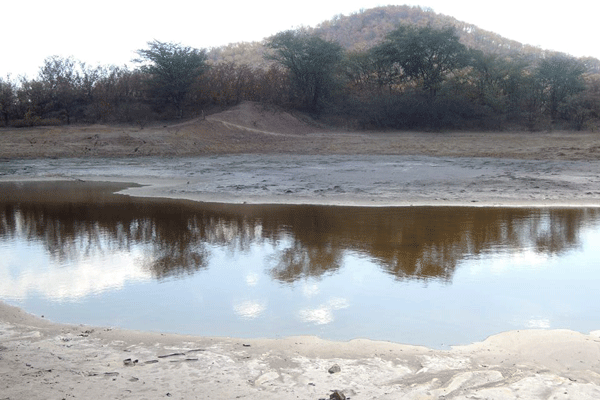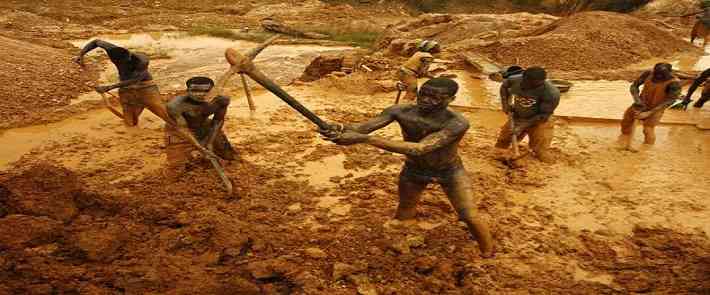
BY LETHOKUHLE NKOMO
The huge trucks and big machinery used to be a spectacle for villagers in Hwange district’s three wards.
They hoped for employment and improved livelihoods after years of missing opportunities caused by the bussing of workers from outside Hwange.
The miners promised to build schools, clinics and most importantly, to stay away from the Deka River, a major source of drinking water for the villagers, which feeds into the Zambezi River and provides employment for those who cannot be employed in mines.
Mining operations are coming closer to the river’s catchment area, some depositing their impurities into the Deka river.
The once clear water is turning green with an unpleasant smell and is slowly becoming a death trap for aquatic life.
Rosemary Shoko, an elderly villager, has been vocal about the water pollution allegedly caused by the miners.
“I am no longer afraid of anyone,” Shoko said.
- Chamisa under fire over US$120K donation
- Mavhunga puts DeMbare into Chibuku quarterfinals
- Pension funds bet on Cabora Bassa oilfields
- Councils defy govt fire tender directive
Keep Reading
“I will keep talking about this because the Deka River is our source of livelihood.
“We earn a living through fishing in this river, but our fish are dying. The water is even visibly polluted.
“We have engaged the Hwange Residents Association and various organisations to amplify our concerns.
“Recently, our cattle have been experiencing stillbirths in our ward, and we suspect it’s being caused by drinking the polluted water from the Deka River.
“This is not for the first time. It has happened before.”
Although there has been the drilling of boreholes to reduce the human consumption of water from the Deka River, the villagers’ livestock continues to be in danger from drinking the polluted water in the Deka water source.
Fish from the river has also been reportedly dying.
Research done by the Environmental Management Agency (EMA) revealed that acid mine drainage (AMD) from the mining activities in the area was affecting aquatic life as fish are dying.
Other pollutants from mining activities such as coal dust or fines were cited as contributors to the death of fish in the Deka River.
Green Shango Environmental Trust founding member Daniel Sithole, said the Deka River pollution had reached unprecedented levels, catastrophic to the fauna and flora downstream up to Zambezi River.
This is exacerbated by the perennial discharge of partially treated acid mine drainage (AMD) and runoff pollution from unsustainable and extractive coal mining.
AMD refers to the outflow of acidic water from a mining site.
Shango believes a sustainable solution to this problem of water pollution in Deka entails investing in blocking plugs, stopping of unsustainable coal mining along the river bed, introduction of new business opportunities for fly ash from Zimbabwe Power Company.
In addition, making use of plants species in artificial wetlands, reintroduction of tarred road, use of limestone to neutralise the ph and lastly provisions of livelihoods empowerment projects especially the locals who downstream.
“A major part of the solution to this pollution lies in dealing with this problem,” Sithole said.
“Once you solve this, we would have found a lasting solution because surely we can’t separate incidents like the death of fish, the stillbirth of cattle from pollutants being intentionally discharged to the river.”
In most cases, this acidic water results from a mixture of air and other chemicals from the mines.
The current AMD treatment system comprises neutralisation using lime, settling ponds and wetland, which is not efficient as the effluent has some parameters that are normally above permissible limits, particularly manganese and, at times, iron and sulphur.
*This article was originally published by The Citizen, a nonprofit news organisation that produces hard-hitting, hyperlocal reporting and analysis for the southwestern region of Matabeleland.










